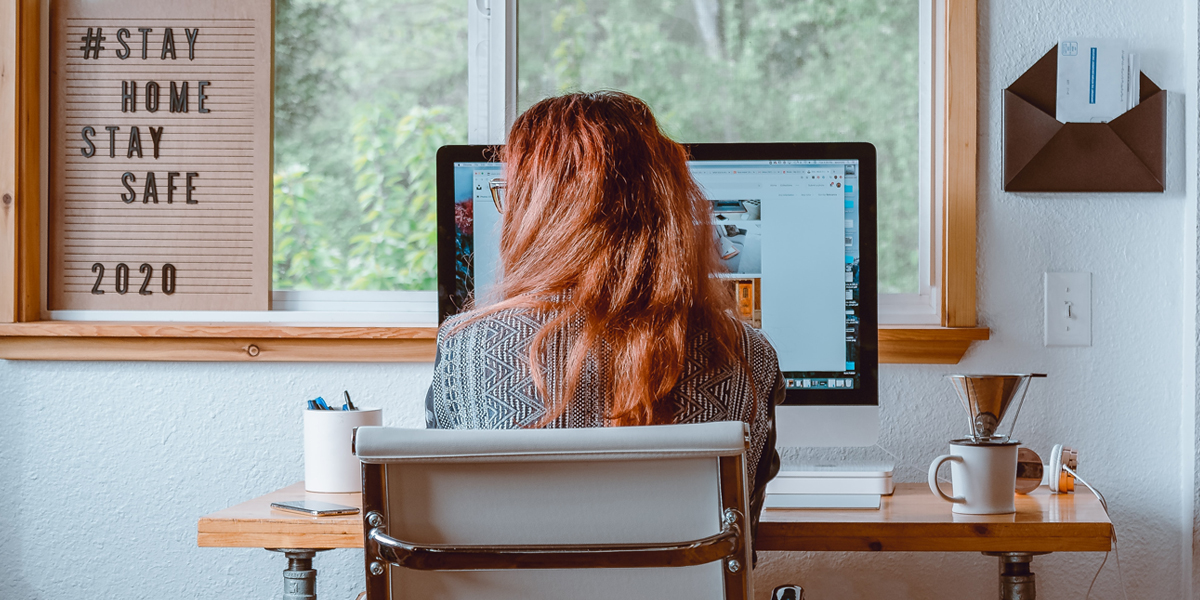As the Covid-19 pandemic ebbs and flows, the working landscape has changed beyond anything we could have imagined a few years ago. Many of us have got used to the day-to-day reality of working remotely from home or in a very different way at our places of work. But now that the drift back to the office has begun, the question which many of us will have been asking ourselves over the past year still remains, are we better off at home or in the office?
Throughout the pandemic there have been articles all over the media telling us what we should think and do, and at JTS we’ve been collating them from the outset. Here we’ve put together a list of pros and cons so that you can make up your own mind.
Productivity
Pros
• Flexibility – The flexibility of working at home means that you can often work hours which suit you. You could monitor your productivity and see what times of day you’re more focussed.
• More focus – Sometimes working at home can create fewer distractions, as a quieter space than a busy office environment. You could feel more relaxed which could increase your focus.
• Increase productivity – If your focus is better early in the mornings, with no commute, you can start work earlier at home. Also, you don’t have the, sometimes annoying, distraction of listening to colleagues chatting or making phone calls, pulling your mind away from your work.
Cons
• Interruptions – If you have children at home, they can be a constant source of interruption. Also, you may have a partner who has to work from home alongside you.
• Less focus – Missing the adrenaline of the office environment and lacking the self-discipline to work from home can lead to a lack of focus and lowered productivity.
• Doing too much – With no delineation between office and home, it’s easy to work over your paid hours. It may be difficult to know when to stop.
• Lack of human interaction – It’s easier to ask for help if you’re sitting in the same room as someone else or they are physically nearby, and there’s less opportunity for forming work relationships which can lead to productive discussions or collaborations when you are working from home.
Practicalities
Pros
• No more commuting – You can save time and money by losing the daily commute.
Cons
• Lack of Space – Your house may not have space for a home office which could leave you feeling uncomfortable, working on the sofa or in the bedroom.
• Body health – Your home may not be the right environment for long periods of working. Are you able to sit correctly? Do you have the right kind of chairs, or desks, lights etc.?
• Lack of equipment – Do you have a good enough computer or wi-fi connection? You may be having to share your wi-fi with other family members which could slow you down.
• Expensive bills – You may be looking at higher bills for lighting and heating in the winter when you would have been at work, or you may have to pay for a more efficient wi-fi connection.
• Child Management – You’ll need to find a way to manage your children to keep them supervised and occupied if you are all at home together.
Mental Health
Pros
• No daily commute – Less stress from commuting to work, keeping your blood pressure lower. Long commutes can cause you high levels of stress and anxiety. A study by the Office of National Statistics showed that those with a long commute were 33% more likely to suffer from depression.
• Less financial stress – Commuting can be an expensive business, adding to your daily load of stress.
• A quieter atmosphere – Some of us aren’t suited to a loud and busy office environment, so working at home can have a positive effect on our mental wellbeing.
• Family time – Increased family time can have a beneficial effect on our mental health.
• Work/life balance – A better work/life balance can make us feel happier and healthier. Being at home can sometimes give you the chance to arrange work around your family life.
Cons
• Work/life balance – It’s easy for work/home lines to get blurred when you don’t physically leave the house. Difficulties with streamlining your days can lead to overworking or frustrating interruptions from other members of your family. Juggling your work with your responsibilities in the home can lead to feelings of failure and anxiety, as both a professional and a parent.
• Isolation – It’s easy to feel isolated if you’re working from home, especially if you live alone. Losing the sociability of the office environment can lead to loneliness and depression.
• Losing motivation – If you’re not used to working from home it can be psychologically difficult to keep your momentum going and stay energised and enthusiastic.
Knock on Effect
Pros
• Wages go further – You could have more money available as you’ll be spending less on petrol, public transport, that daily Frappuccino etc.
• Saving money – If you are self-employed you could save money on office space, rent, bills etc. working from home.
Cons
• Ghost towns – With the presence of office workers dwindling, other businesses that rely on their day-to-day custom will begin to fail.
Satyam Patel, who has run the Corner Shop in Bow Lane for 35 years, said he now saw 50 customers a day compared with 800 before lockdown.
“Trade’s down 90%, it’s very demoralising,” he said. “You’re just wondering what’s going to happen and where you’re going to end up. You don’t see regular customers any more. There are so many customers you don’t see and you wonder where they are and how they are.”
Coronavirus: Working from home ‘costs central London £2.3bn’ By Nicky Ford. BBC News. Published 24 September
• Loss of team – It’s more difficult to nurture workplace relationships and camaraderie remotely which can lead to dissatisfaction and a lack of teamwork.
• Inhibited communication – If managers aren’t proactive in connecting remote workers there can be less spontaneous cross fertilisation of ideas.
• The end of the office romance? – Kindling new relationships could be more challenging in the future, as a reduction of interaction with colleagues could lead to less office romances. In 2018 researchers who polled 2000 adults discovered that 1 in 5 of them had met their partners at work. https://www.independent.co.uk/life-style/valentines-day-love-life-meeting-social-gatherings-dates-work-romance-a8206271.html
• Being yourself – Some people have an entirely different persona at work, perhaps being much more assertive than they are at home. The cross-over of work/home personas could cause tension with your children or partner.
Environment
Pros
• Reducing pollution – Less cars on the road leads to a reduction in greenhouse gas emissions creating a healthier, cleaner environment for everybody. Research by O2 revealed that if UK workers (who could work remotely) did so 2 days a week, the UK would see a decrease in travel equivalent to more than the total emissions for Northern Ireland! https://news.o2.co.uk/press-release/commute-cautious-brits-want-to-keep-working-from-home-despite-calls-to-return-to-the-office/
• Diminishing stress – Less commuting means less frustration and consequently less stress.
• Gaining time – No more wasted time sitting in traffic jams or waiting for trains or buses that are late or don’t turn up!
Cons
• Reducing pollution – There is an argument that an office utilises energy more efficiently than each worker using the energy in their own homes.
So, if you do decide to, or have to, work from home here are our top tips:
Always get dressed
This will improve your productivity and make you feel like you are a professional!
Make a workspace that’s a functional and comfortable ‘home office’ if you can. See if your company will pay for your extra wi-fi usage or appropriate furniture or equipment that you lack. We’ve helped several companies reduce the amount of desking and seating in their offices and operate a ‘re-use first’ commitment as part of our recycling policy. So, if you or your employer need to source some suitable homeworking furniture give us a call.
Make a schedule and stick to it!
It’s easy to lose track of time or to keep up the self-discipline needed for working days at home. Make a schedule or stick to the same routine every day. Work out when you are most productive during the day and design your schedule around that.
Plan and keep track of what you’re doing
Make plans and lists of what you need to do and what you’ve completed. A plan is crucial to maintain productivity and a to-do list is motivational!
Confidentiality
If you are making any confidential business calls, make sure that you are away from any voice-controlled gaming equipment and switch off your Alexa! https://www.zdnet.com/article/working-from-home-switch-off-amazons-alexa-say-lawyers/
Take breaks
Breaks can boost your performance and it’s important to move around. If your family is at home spend some time with them, have a cup of tea, do some exercise or maybe have a short power nap! Don’t overdo it! Be careful to only look at social media at specific times and mute your alerts to prevent distraction.
Teamwork
If you work with a team, check in with them so that you don’t lose contact. Ask your manager to organise video-chat coffee breaks for you and your colleagues during the working day. Video calls are more personal and engaging than texts or emails and staying in contact with your colleagues can help you to stay happy and motivated.
Create a healthy work/life balance
Establish a set time frame for the beginning and end of your working day and don’t work on weekends unless it’s absolutely unavoidable.
Even taking all these pros and cons into account, the potential transition back to an office ‘normality’ is not going to be simple. You may not wish to go back to work in an office, preferring the advantages of working remotely; you may prefer a flexible approach, working both at home or at work; or you may want to go back to the office, but your employer now wants you to work from home. There’s a potential for contract disputes in all of these scenarios. At JTS we’re both optimistic and hopeful that one day there’ll be a flexible balance between home and office, maintaining the best of both worlds for both staff and employers.












Leave A Comment
You must be logged in to post a comment.